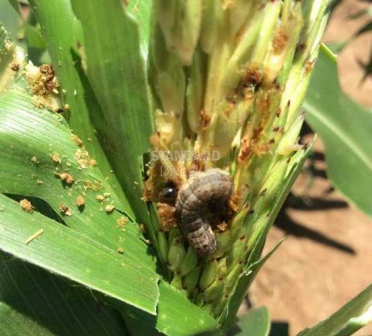×
The Standard e-Paper
Truth Without Fear

Farmers in at least 11 counties are staring at massive crop failure after the stubborn armyworm and stalk borer invaded their farms.
The worm, that can eat up to 10 times its body mass, has been reported in farms in Trans Nzoia, Uasin Gishu and Bungoma. Agricultural experts say the pest is endemic in Brazil and is more resistant to common agro-chemicals used for control.